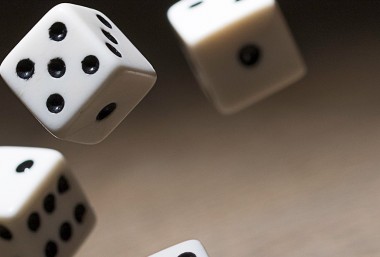In recent years, board games have seen a resurgence in popularity. Social media has made it easier for people to find out about new board games, and crowdfunding has allowed a variety of board games to be created by independent developers.
Designing a board game has its challenges, but many people do not think about the challenge of protecting their board game idea during the design process. Taking the time to consider intellectual property (IP) protection for your board game could help secure long-term success.
Patent protection for board games
A patent protects ideas and inventions like board games. It gives the patent owner legal right to stop others from making, selling, or using their invention for up to 20 years.
A patent claiming features such as a board game apparatus, playing pieces and rules for moving the playing pieces may be patentable. The individual components of a board game, such as the game board, game pieces or any device that allows you to play the game, may be separately patentable.
However, a patent claiming just the rules of a board game is not patentable.
To get a patent, the board game or board game component also needs to be new and non-obvious.
Tips for patenting board games
1. Keep your board game idea a secret
Developing a new board game is new and exciting. You may be tempted to invite people to test out your board game or share a post online and start crowdfunding, but do not do this!
Disclosing your board game idea before filing a patent application could jeopardise your ability to get patent protection. Talk to a patent attorney or IP specialist before you need to disclose your idea.
2. Think about game mechanics and methods of playing the board game
To get a board game patent, a patent specification needs to be drafted. The specification describes the invention. It is important to include a lot of detail to cover all the different ways of playing the board game.
Think about other methods of playing the board game.
- Is there a long or short version of playing the board game?
- Is there an easy or hard version of playing the board game?
- Are there different point scoring systems?
- What is the player’s goal?
- What choices can a player make and how will that affect other players?
- Is there potential for expansion packs or different versions of the same game?
- Can an online or app version of the board game be made?
Thinking about these questions will help identify the fundamental game mechanics that the patent should protect.
3. Distinguish your board game from others
A board game needs to be new and non-obvious to get a patent. It is important to identify what makes your board game different from all the other board games that currently exist. For example, Scrabble, Boggle and Upwords are all examples of spelling games, but they differ in that they each have unique game mechanics, different board layout and game pieces.
Conducting a patentability search may help identify the distinguishing feature in your board game. Alternatively, try typing the key themes or gameplay of your board game idea into an internet search engine and see what other board games have similar designs and how they are played. Identify what makes your board game different over the existing board games.
Other forms of IP protection
In addition to patent protection, other forms of IP protection may help you when developing and marketing your board game.
Design registrations can protect the ‘look’ of your game board, game pieces or cards. They do not protect the idea behind your board game—only the visual appearance. Designs are cheaper and are usually quicker to get registered than patents. Protection for registered designs lasts for 15 years, whereas patent protection lasts for 20 years.
A trade mark protects your brand. It can protect the name and logo of the board game and the board game logo, as well as other designs, symbols, sounds, or even three-dimensional shapes used in the board game.
Finally, copyright gives creators of original works free automatic protection. Copyright can protect the visual appearance of your game board, game pieces and cards; any written material such as game instructions and back story; and any audio or video that is part of your board game.
How AJ Park can help
If you have developed a new board game and would like assistance with IP protection, contact AJ Park. Our experienced team of IP experts can help ensure long-term success.








